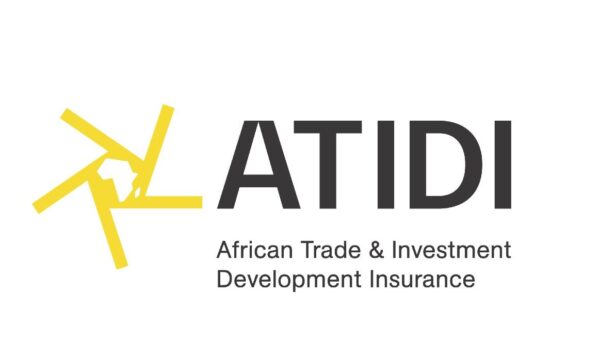- ATIDI supports the 35 MW greenfield geothermal project in Kenya with its Regional Liquidity Support Facility (RLSF)
- The project, the first to be considered for RLSF cover in Kenya, is set to benefit from ATIDI’s liquidity instrument which will cover the risk of payment default by public entities: GDC and KPLC
- Kenya’s power sector benefits from an active private sector and boasts abundant renewable energy resources with hydro, wind, and geothermal projects dominating its energy mix
Barcelona, June 25, 2024 – On the first day of the Africa Energy Forum (aef), the African Trade & Investment Development Insurance (ATIDI) and Globeleq Africa Limited, jointly announced the former’s support for the 35 MW Globeleq Menengai Geothermal Project with liquidity cover via the Regional Liquidity Support Facility (RLSF). RLSF, a joint initiative of ATIDI, the KfW Development Bank and the Norwegian Agency for Development Cooperation (Norad), is a credit enhancement instrument available to renewable energy Independent Power Producers (IPPs) that sell the electricity generated by their projects to state-owned power utilities. RLSF is offered in ATIDI member countries that sign the RLSF Memorandum of Understanding.
The project, the first to be considered for RLSF cover in Kenya, is valued at USD117 million with financing being provided by the African Development Bank (AfDB), the Eastern and Southern African Development Bank (TDB), the Finish Fund for Industrial Cooperation (Finnfund), and equity from the project owners, Globeleq. The proposed RLSF policy will cover the risk of payment default by the national utility, Kenya Power & Lighting Company (KPLC) and Geothermal Development Corporation (GDC) – a government-owned company formed to accelerate the development of geothermal resources in Kenya. Steam will be supplied to the project by GDC under the terms of a 25-year power implementation and steam supply agreement, whilst the electricity generated will be sold exclusively to KPLC under a power purchase agreement for the same duration. The Project Company also benefits from a Letter of Support from the Government of Kenya.
Kenya, the host country of ATIDI’s headquarters, became the tenth ATIDI member state to sign the RLSF MoU after Benin, Burundi, Côte d’Ivoire, Ghana, Madagascar, Malawi, Togo, Uganda and Zambia. The RLSF MoU aims to encourage collaboration between ATIDI and its member states in identifying, developing, and implementing renewable energy projects. In addition, the objective of the RLSF MoU is to leverage each member state’s natural resources to generate clean and sustainable energy and reinforce its power generation and transmission capacity. To date, RLSF policies have been approved in support of seven (7) renewable energy projects in Burundi, Malawi, Uganda and now in Kenya; enabling total financing of USD 323.7 million and a total installed electricity generation capacity of 171.3 MW, courtesy of USD 20.6 million worth of cover under the RLSF portfolio – achieving an impressive leverage or mobilization ratio of 16 times.
Kenya’s power sector benefits from an active private sector and boasts abundant renewable energy resources with hydro, wind, and geothermal projects dominating its energy mix. Furthermore, the Government of Kenya has outlined ambitious plans to increase the country’s electricity generation capacity from 3,078 MW in 2023 to 5,000 MW by 2030. Geothermal projects are therefore expected to play a significant role in achieving this target and in advancing the nation’s renewable energy goals.
Thanks in part to ATIDI’s RLSF initiative which ensures the stability and the viability of renewable energy projects, Kenya is on its way to meeting its goal of transitioning to 100 percent clean energy by 2030.
Quote from ATIDI – Manuel Moses, CEO
“We are proud to collaborate with Globeleq, KPLC, GDC, and the Government of Kenya on this transformative project. This partnership, coming so soon after the signing of the RLSF MoU in February 2024, underscores our commitment to fostering sustainable development and promoting renewable energy solutions across Kenya and the region. Together, we are driving positive change and advancing Kenya’s energy transition. Given Globeleq’s huge and growing portfolio of renewable energy projects across the continent, we look forward to building on this partnership.”
Quote from Globeleq – Jonathan Hoffman, Interim CEO
About ATIDI
ATIDI was founded in 2001 by African States to cover trade and investment risks of companies doing business in Africa. ATIDI predominantly provides Political Risk, Credit Insurance and, Surety Insurance. Since inception, ATIDI has supported USD85 billion worth of investments and trade into Africa. For over a decade, ATIDI has maintained an ‘A/Stable’ rating for Financial Strength and Counterparty Credit by Standard & Poor’s (S&P), and in 2019, ATIDI obtained an A3/Stable rating from Moody’s, which has now been revised to A3/Positive.
More about ATIDI: www.atidi.africa – Media registration link: https://www.atidi.africa/media-kit/
About Globeleq
Globeleq, which is owned 70% by British International Investment and 30% by Norfund, is the leading developer, owner and operator of electricity generation in Africa. Since 2002, its experienced team of professionals have built a diverse portfolio of independent power plants, generating 1,794 MW in 17 locations across seven countries, with a further 485 MW in construction and more than 2,000 MW of power projects in development. More details at www.globeleq.com.
About the Regional Liquidity Support Facility (RLSF)
ATIDI and the German Development Bank, KfW Development Bank, with financing from the German Federal Ministry for Economic Cooperation and Development (BMZ), launched the RLSF in 2017. The Facility was created to help tackle climate change and attract investments by supporting renewable energy projects in ATI’s member countries. In 2022, the Norwegian Agency for Development Cooperation (Norad) committed additional funding towards the continued implementation of RLSF. RLSF has a capacity of USD 153.7 million and supports small and mid-scale renewable energy projects with an installed capacity of up to 100 MW (larger projects can be considered on a case-by-case basis) by protecting the projects against the risk of delayed payments by public offtakers; in turn improving project bankability and ensuring that more projects reach financial close.
www.atidi.africa/our-solutions/energy-solutions/regional-liquidity-support-facility-rlsf/



